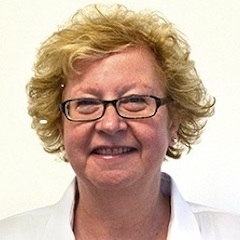
Years ago my mother’s neurologist had a poster on his office wall urging support for stem cell research. It was clear that he believed that stem cells were one of the best hopes for a possible treatment for his Alzheimer’s patients.
Nancy Reagan believed the same. She famously broke with the leadership of the Republican Party to push for stem cell research into the Alzheimer’s disease that robbed her of her husband.
Stem cell treatments have become more available since then, first mostly in other countries and now in the United States. With that growth, the U.S. Food and Drug Administration will hold two days of hearings next month to consider greater oversight, according to The Wall Street Journal.
There are now nearly 600 clinics in the U.S. offering stem cell therapies for everything from Alzheimer’s to autism, according to new research published in the journal Cell Stem Cell. The researchers found at least 351 U.S. businesses engaged in direct-to-consumer marketing of stem cell interventions offered at 570 clinics.
“We’ve been following this for a while … to find 351 distinct businesses, that is an awful lot of businesses making marketing claims about stem cell interventions,” Leigh Turner, coauthor of the study and a bioethicist at the University of Minnesota, recently told Kaiser Health News. “There are businesses operating in the United States that are making marketing claims that are just as problematic as businesses in other countries.”
The FDA will have to decide whether stem cell treatments should be more closely regulated in this country. There are arguments on both sides.
Mainstream scientists say it will be years before stem cell research and its therapies are proven safe and effective. Critics say the clinics are offering modern-day snake oil and taking advantage of desperate patients who have run out of options. Proponents, including patients who say they have been helped by the treatments, say the government should butt out and let people make their own decisions about their bodies.
The agency will no doubt hear about the dangers. The New England Journal of Medicine earlier this summer reported the case of a 66-year-old man who engaged in “stem-cell tourism” by undergoing treatment at stem cell clinics in China, Argentina and Mexico, and paying tens of thousands of dollars each time for injections in an attempt to recover from a stroke. The New York Times called it a “cautionary tale” for those who might seek treatment in overseas clinics that say on their websites that they can treat and even cure diseases such as Alzheimer’s, Parkinson’s and muscular dystrophy. In the case of this one American, his symptoms did not get better and he started to lose his ability to walk. In fact, U.S. doctors found a bloody mass of tissue growing in his spinal cord--cells that weren’t his own.
“This is the future of healthcare, using your own stem cells to fix problems, not drugs,” Paula Grisanti, chairwoman of the National Stem Cell Foundation, a nonprofit that funds many research projects, told the WSJ. “But clinics that make over-the-top claims that a single stem cell therapy will cure ALS or Parkinson’s or other diseases raise huge safety and ethical concerns. It gives the whole field a black eye.”
But SammyJo Wilkinson, a former dot-com executive who has multiple sclerosis, told the newspaper that she was helped by stem cell treatment. She has founded a patient group called Patients for Stem Cells and wants to see a faster approval process for stem cell therapies and a registry to track patient outcomes.
It’s a debate that raises lots of questions. If you were going blind or could no longer walk, would you take a chance on stem cell treatments? What would you tell a patient?
With a disease such as Alzheimer’s there are frustratingly few options for patients. With a series of other health problems, including diabetes, my mother was never a great candidate to participate in any clinical trials and she was not enthusiastic about the idea. I followed the news about potential new treatments that always seemed to fizzle and made sure she was taking the few medications that could help slow down the loss of memory.
It’s been five years since her death. Would my mother have wanted to pursue stem cell treatment if she were still alive? I can’t imagine she ever would opt for something so experimental and potentially dangerous. Would I? I think it would depend on the health crisis I was facing and what I could learn about the chance for success.
Doctors and patients stay tuned. The FDA may soon be deciding the future for many.